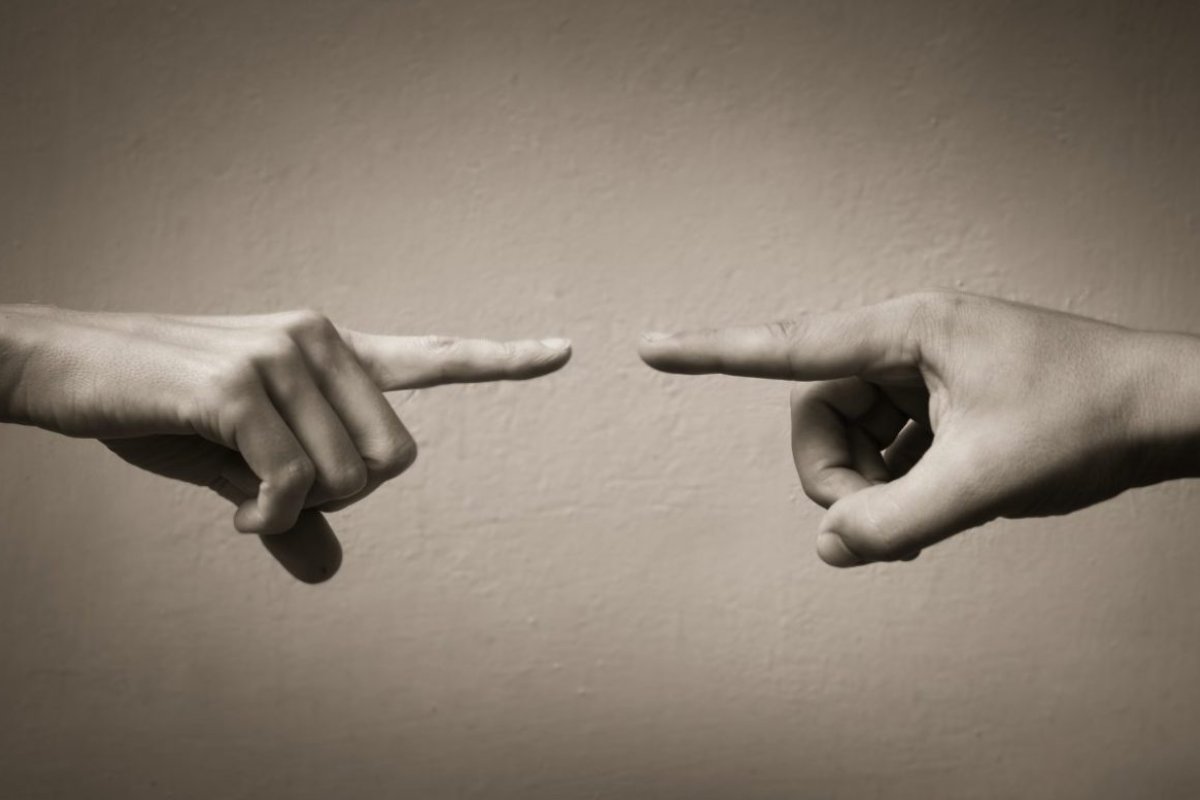
The Hypocrisy Juke
Responding when people say “protest this, not that”
No matter how bad something is, there’s always something worse. Or so it seems according to the popular rhetorical move I call the “hypocrisy juke.” It goes like this: a person or group protests something, and then someone else dismisses them and calls them a hypocrite because they aren’t protesting another, different thing. (By “protest,” I mean everything from marching to posting on social media.) Here are a few examples:
- dismissing Black Lives Matter protesters because they aren’t protesting gang violence
- dismissing pro-life advocates because they aren’t protesting the death penalty
- dismissing feminists speaking out against “manspreading” because they aren’t protesting human rights violations against women around the world
- dismissing gun control advocates because automatic weapons don’t kill as many people as cars, stairs, and so on,
- dismissing people who denounce America’s military endeavors instead of protesting other countries’ acts of military aggression.
The term “hypocrite” entered the English language in thirteenth-century religious texts to refer to people who pretend to be pious or virtuous to deceive others. To be a hypocrite is to feign having moral or religious convictions without actually following through on them. When someone uses the hypocrisy juke, it is not to encourage others to be faithful to their commitments but an accusation that they do not have sincere commitments in the first place.
Here are six things to think about before using the hypocrisy juke:
Just because they could or should be protesting something else, does not mean their current protest is illegitimate. Keen readers will notice a trend in the above list: the word “dismiss.” Even if there is something far more worthy of protest, it’s still possible that the problem they’re concerned with merits attention. If you want to redirect another’s energy in a more helpful direction, it’s best to acknowledge the validity of their concerns and then make a case why another course of action may be more pressing at this moment. If someone is angry about something, telling them the issue is inconsequential is like telling your irate spouse to “calm down”—you’ll only make them angrier.
It’s not always first-things-first; lots of different social problems need to be addressed at the same time. Think about it this way: a basketball team has to make sure they defend the opposing team’s best player. But if everyone on your team is guarding their best player, the other four players will run amok, and you’ll lose. Climate change may be the biggest threat to our world, but we still need people speaking out against abusing pit bulls. Totalitarianism may be the biggest threat to our nation, but we still need people petitioning to provide halal meals to incarcerated people. The fact that one issue should be a society’s top priority does not imply that other priorities should be ignored in the process.
People don’t choose what to protest based on what’s most important, but on what they think they have a reasonable chance to influence. Protesting is a means to an end of getting something accomplished. People want to contribute to actually changing a small facet of the world. One of the reasons why the Black Lives Matter movement protests police brutality is that they see the police as an organization that can potentially be held accountable by legal means, informed by public opinion. Of course more people die from household accidents than police violence, but what could a march against household accidents possibly accomplish?
This explains why American anti-war protesters tend to focus on America’s involvement in war, Russian anti-war protestors focus on Russia, and so on. Some of the social problems people focus on may seem relatively minor, but then again, most people don’t have the power to address larger ones in consequential ways. This is why people tend to jump on protest bandwagons. By joining their voice together with others, they can add strength to a movement that can potentially affect change. It is not simply virtue signaling, it’s turning one’s attention to a problem where critical mass can be reached and lasting change can be made.
People can protest multiple things; check and see what else they are protesting before accusing them of hypocrisy. Rudy Giuliani said, “If they meant ‘Black Lives Matter,’ they would be doing something about the way in which the vast majority of Blacks are killed in America, which is by other Blacks.” There are two problems with this. First, see point #3 above and recall that the killers Giuliani refers to are less likely to respond to oversight and accountability than the police. But second and more importantly, many of those protesters are doing a lot to put an end to so-called “Black-on-Black” violence. In Chicago, where I live, grassroots rallies against civilian violence happen all the time. Movements like Black Lives Matter emerged out of longstanding groups working for peace in their communities.
There may be relevant distinctions to be made between social problems. Take, for example, the charge that pro-life advocates are inconsistent if they are not opposed to the death penalty. They can respond that there is a morally significant distinction between taking the life of an innocent unborn child and taking the life of a guilty offender. There’s nothing inconsistent about this, or at the very least, there’s nothing obviously inconsistent about it. Here, one would need to make an argument that the distinction does not hold rather than making a hypocrisy juke. Or consider people who criticize Palestinian violence against Israel, but not vice versa. One might find their stance hypocritical, but if they see Israeli violence as a legitimate government’s suppression of a dissident group, there is no obvious inconsistency. The burden of proof is on the critic to show the inconsistency when it is not obvious.
Problems are often interrelated; there can be a “trickle-up” effect in social change. I’ll get personal for a second. My research focuses on the ethics of war, which means I frequently contemplate the possibility of nuclear annihilation. Compared to that, it’s easy for me to think that anyone who makes a fuss about organic coffee farming or workplace prejudice against tattooed people is preoccupied with something relatively insignificant. But Martin Luther King Jr.’s maxim “injustice anywhere is a threat to justice everywhere” should remind us that all of these issues are all woven together in a moral fabric. Seemingly insignificant changes in how people think about one issue could be the catalysts for larger changes in people’s whole worldviews. It may be the case that a person arguing against toxic masculinity may do more to prevent nuclear war than someone who focuses specifically on the ethics of war. A person working to change elementary education policy might reduce income inequality more than economic activists. Even something as minor as calling for common courtesy when listening to music in public might make the world a more peaceful place.
In conclusion, there are times when an accusation of hypocrisy is a valid and constructive way to criticize someone else. There are also some social issues which demand our attention more urgently than others. But the “hypocrisy juke”—when one discredits a protestor simply because of what he or she is not protesting—is more likely to roll eyes than to change minds.
Plus, aren’t there better things for you to be protesting than someone else’s protest?
An earlier version of this essay was previously posted at For the Sake of Arguments
Sightings is edited by Joel Brown, a PhD Candidate in Religions in the Americas at the Divinity School. Sign up here to receive Sightings via email. You can also follow us on Facebook and Twitter. The views and opinions expressed in this article are those of the author and do not necessarily reflect the position of the Marty Center or its editor.


